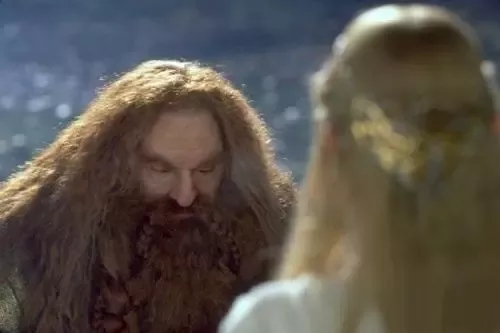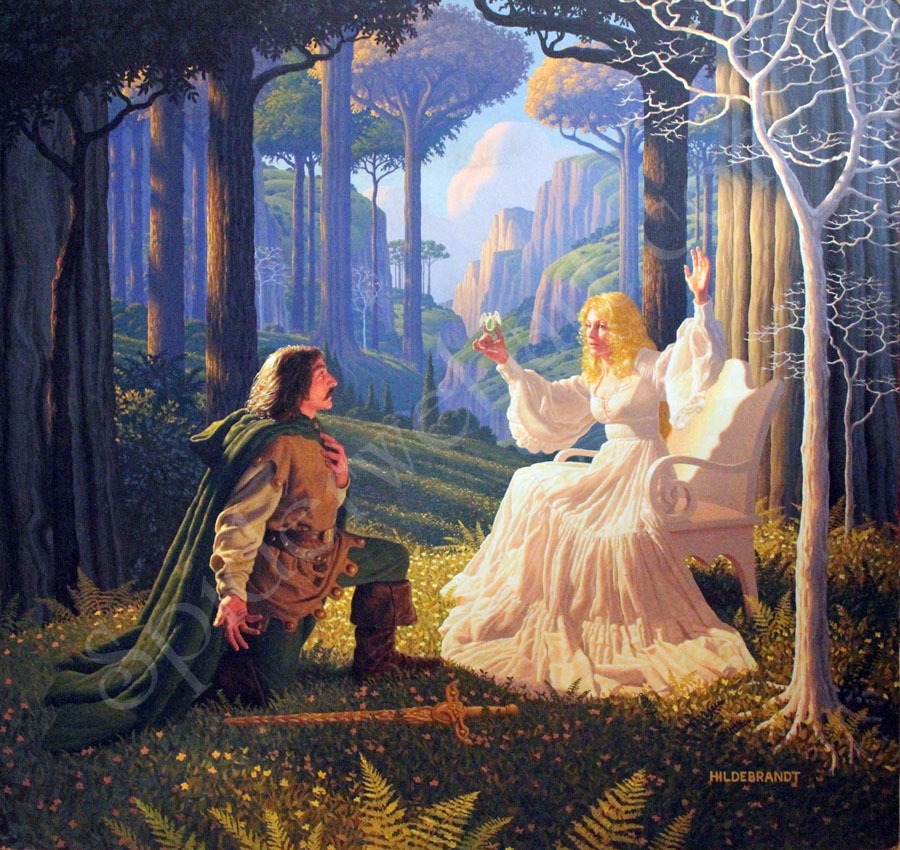The Two Towers by J.R.R Tolkien (Harper Collins 1991, 2007) pp. 789-798
There comes a point in Frodo and Sam’s efforts to descend the steep eastern slopes of the Emyn Muil when they scramble down a gully to a point where Frodo thinks they might be able to escape the hills altogether. He is just making his way down to a ledge some way below when a cry sounds in the sky above them. It is a Nazgûl and so terrible is the sound out in the wild that Frodo puts his hands to his ears and finds himself sliding down the face of the hills to another ledge below the one that he had originally intended to reach.
For a moment Frodo is blinded and terribly shaken and Sam does not know how he will reach him. He begins to brave the descent that Frodo has just made rather precipitously when Frodo stops him.
“Wait! You can’t do anything without a rope.”
And suddenly Sam remembers the coil of rope that he has carried all the way from Lothlórien; a gift of the Elves of that land.
“Never travel far without a rope!” said the Elf who had given it to Sam. “And one that is long and strong and light. Such as these. They may be a help in many needs”
The rope that Sam has carried in his pack is about 30 ells in length or about 110 feet, quite long enough to get them both down to the ground below. Although the rope seems to be so slender that it could not possibly bear their weight it turns out to be very strong. It also turns out to have other qualities. When Sam lowers it to enable Frodo to scramble back up to the point at which he fell the rope shimmers in the dark in such a way as to dispel his temporary blindness. And the rope has a further quality. When Frodo and Sam finally reach the bottom of their descent and realise that they cannot bring the rope with them Sam mournfully gives it a farewell tug. To his surprise and chagrin it falls into his hands. Frodo breaks into mocking laughter remarking on the quality of Sam’s knot.

Frodo is not convinced of Sam’s knot knowledge or the quality of his rope
“I may not be much good at climbing, Mr. Frodo,” he said in injured tones, “but I do know about rope and about knots. It’s in the family, as you might say.”
They check the rope to see if it had frayed but found it completely whole. Sam has complete faith both in the Elven rope and also in his own skill with knots and at the last he declares, “Have it your own way, Mr. Frodo… but I think the rope came of itself- when I called.”
And Sam is right. That is exactly what happened. And with this Sam is beginning to learn a relationship to things that is a form of wisdom, a wisdom that the Elves of Lothlórien have developed over many years. To the Elves all things that we tend to treat as mere tools, mere objects, have a kind of consciousness. We see this with lembas, the waybread that at this point in the story is the only food that Frodo and Sam have. We remember that when Merry and Pippin escaped from the orcs they noted that lembas “does put heart into you. A more wholesome sort of feeling, too, than the heat of that orc draught.” And later in the story we will see what the Phial of Galadriel can do in the darkest place.

Perhaps Sam puts the Phial of Galadriel to better use than Frodo.
At first Sam is inclined to call this quality a kind of magic, Elven magic. But he is learning that he also has the ability to evoke a kind of aliveness in things just as the Elves do and just as great craftsmen and women do. This evocation is a deep form of attentiveness. The patience to wait until the inner life of a thing reveals itself. Eventually Sam will use this attentiveness through Galadriel’s gift to him, the little box of dust that he will use to heal the Shire after Saruman’s scouring of it. Through that dust and Sam’s particular use of it the babies born in the year after will be especially beautiful and the beer especially good.
All of these things are expressions of the way in which dark places can be transformed. Ordinary things like rope, food and dust are found to have a real presence but we must pay them sufficient attention in order to find that presence and to allow it to transform our lives.

Rose Cotton picked a good husband! Sam brings the beauty of Lothlórien to the Shire.
























